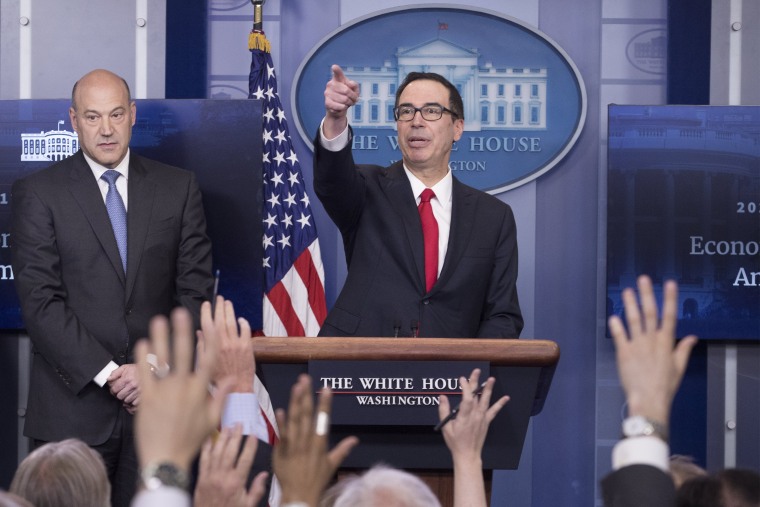As 2016 came to a close, the value of the U.S. dollar was at one of its highest levels in over a decade. It wasn't long before Donald Trump sought credit for the trend that began months earlier. "I think our dollar is getting too strong, and partially that's my fault because people have confidence in me," the Republican president said in April 2017.
His understanding of monetary policy was effectively, "The dollar is strong because everyone is impressed by how awesome my awesomeness is."
The boast was foolish at the time -- "strong" dollars are not always good, just as "weak" dollars are not always bad -- but it looked even worse as Trump's first year continued and the value of the dollar gradually fell, despite the U.S. economy's general health. (By the president's reasoning, I guess this meant people had lost confidence in him?)
Yesterday, as Politico noted, the administration's line on the dollar took another odd turn.
The Trump administration declared a surprising war on the U.S. dollar on Wednesday, breaking from a long tradition in which top American officials generally voice support for a strong American currency.Speaking at the World Economic Forum in Davos, Switzerland, Treasury Secretary Steven Mnuchin shocked Wall Street by lauding the impact a weaker dollar can have on U.S. companies as it makes exports cheaper for other countries to buy.
In comments that rattled markets, Mnuchin told reporters, "Obviously, a weaker dollar is good for us as it relates to trade and opportunities."
Soon after, Commerce Secretary Wilbur Ross talked to CNBC and seemed to walk back his cabinet colleague's comments, saying Mnuchin "was not advocating anything" in terms of the dollar, despite what everyone heard Mnuchin say.
And then the president himself weighed in, contradicting Mnuchin further, telling CNBC, "The dollar is going to get stronger and stronger, and ultimately I want to see a strong dollar." (The dollar is not currently getting stronger and stronger.)
Mother Jones' Kevin Drum makes a compelling case that it's easy to overstate the effects of officials' rhetoric on the dollar's value. And while that's a fair point, the developments struck me as notable anyway.
First, Trump World's inability to speak coherently on practically every subject clearly isn't getting any better. Trump, his Treasury secretary, and his Commerce secretary have now made different public comments about U.S. monetary policy, and it's entirely possible that one of them -- or all of them -- will say something entirely different tomorrow.
And second, I'd love to hear the administration reflect on why the value of the dollar has declined, despite decent economic growth, since Trump took office.
